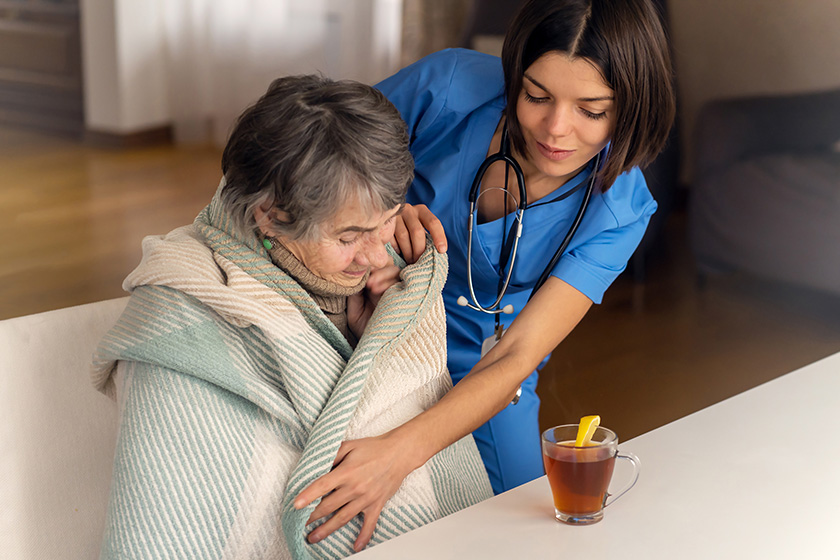If you and an aging loved one are living in a region where extreme weather is common, you need to ensure that measures for extreme weather safety are put in place at home. Winters dipping down into the single digits and summers that have intense humidity and heat are all considered extreme weather conditions. Here are some tips to help ensure your aging loved one stays safe in extreme weather.
Extreme Heat
Rising temperatures can pose a serious threat to older adults who can be very vulnerable to heat exhaustion and hyperthermia. Here is how you can help your aging loved one to take care of themselves as the temperatures rise:
- Ensure Your Loved One Stays Hydrated – Hydration is important for older adults. Encourage them to consume enough liquids on warm days. For older adults who tend to avoid drinking water, turn to other alternatives like juices or healthy popsicles. Be aware of the warning signs of dehydration and always seek early assistance should you notice any detrimental signs.
- Be Mindful of Changing Weather – Keep an eye on the weather forecast so you can avoid going out with your aging loved one when the temperatures are too high. If you need to head out, only go outdoors when the temperature is not at its peak for the day.
- No Air-Conditioning – If there are no air-conditioning systems installed in your aging loved one’s home, turn to other solutions that can help keep them cool at home. Open the windows, get them thin or lightweight clothing, and keep several fans switched on at home. You may also bring them to the library or mall to enjoy the air-conditioning there.
- Be Creative with Staying Cool – There are many ways to help your loved one stay cool. Using ice packs or a damp cloth are good alternatives to keep their body cool.
- Keep Home Safe and Comfortable – A little strategic planning can go a long way. Advise your aging loved one about the safety of using appliances, cleaning the air filters, and others. You can also help them keep their air vents clean and unobstructed at all times and lower the temperature on their water heater.
Freezing Temperatures
Freezing temperatures can put the elderly at a risk of hypothermia and other cold-related conditions. Studies have also shown that they are more prone to falls when the temperatures plunge.
- Turn Thermostat to Safe Level – Older adults have a high tendency to turn their thermostat to swelteringly high when the temperatures outside plunge. Help them to turn it to a safer level which is recommended between 68 and 74 degrees.
- Get the Blankets and Pillows Out – Cuddling in blankets and pillows can be highly comfortable and cozy. They also help to keep your aging loved ones warm during winter.
- Wear Layers – Your aging loved one can also put on multiple layers of clothing that are loose-fitting. This can help them to avoid frostbite which can be painful. There is also thermal wear that you can get for them.
- Watch Out for Ice and Snow – Clear their walkways and patios from ice and snow so they will not slip and fall when heading outside.







